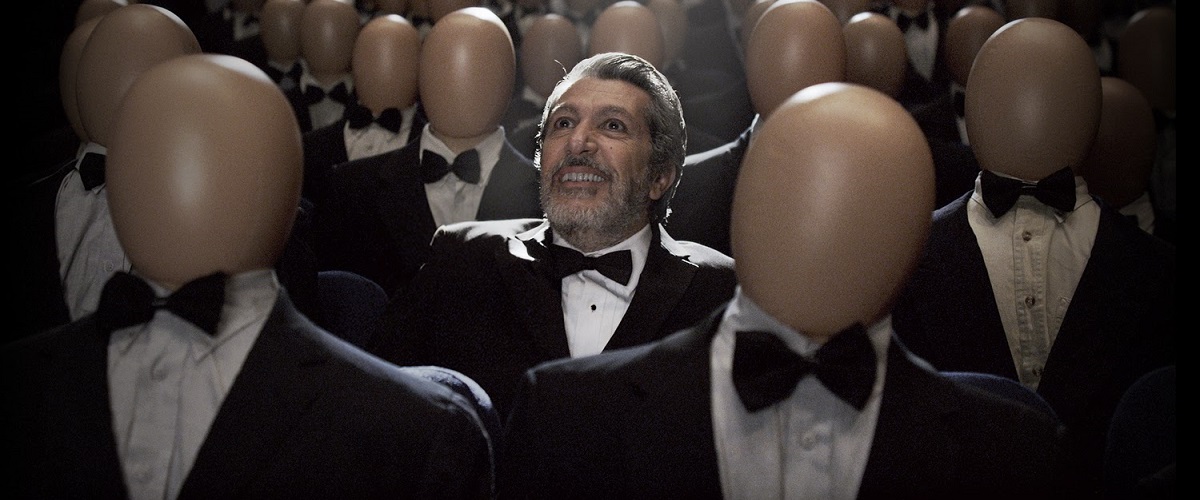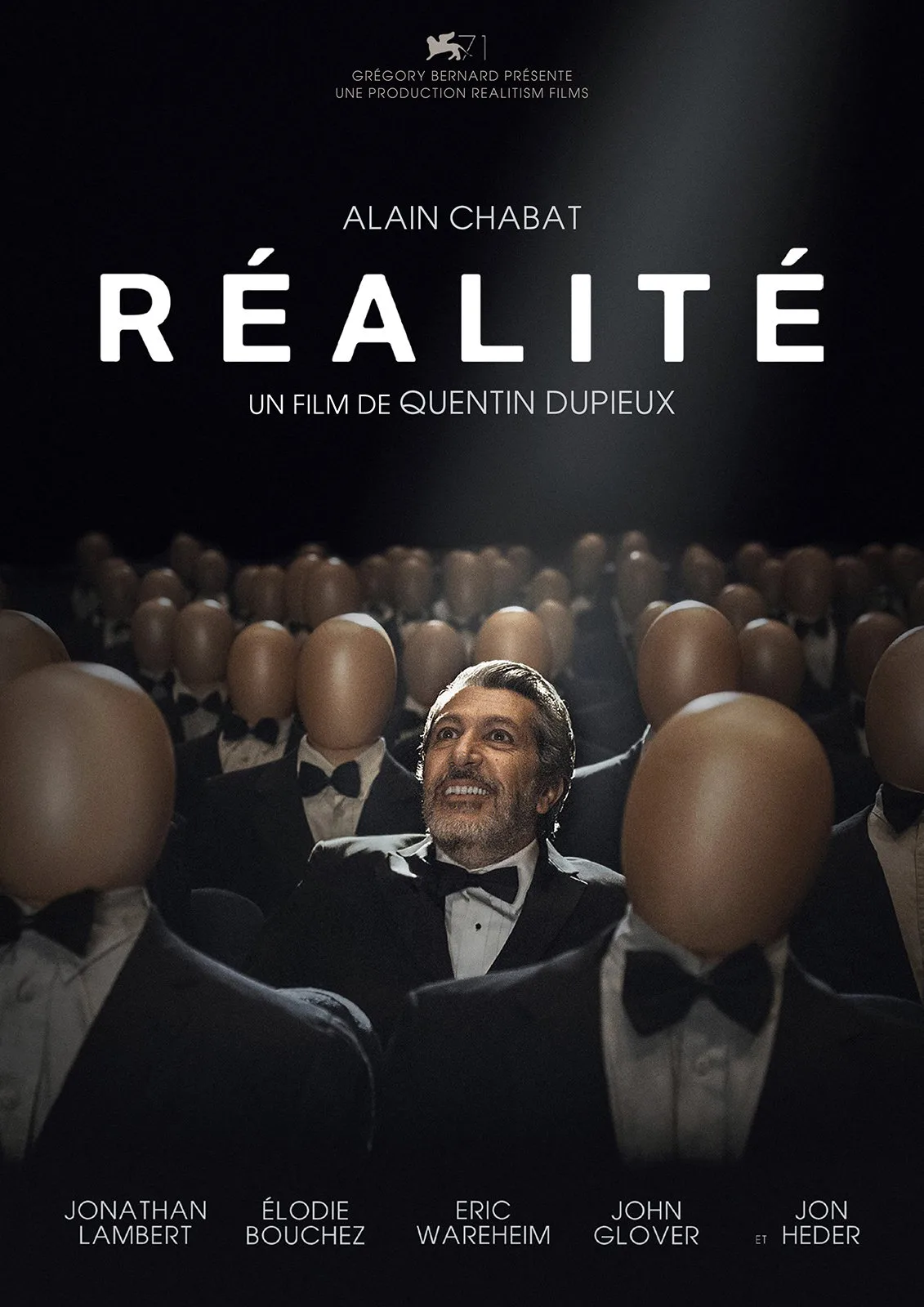“Reality,” a surreal French comedy told as a series of overlapping and increasingly illogical dream sequences, is a blessedly laid-back prank. It’s a chimeric parody of neat, puzzle-box science-fiction films (“Inception,” “Primer“) and everything-is-connected dramas (“Magnolia,” “Babel“). Characters like Dennis (Jon Heder), a cooking show host with an imaginary skin rash, and Jason (French comedian Alain Chabat), a cameraman who becomes obsessed with recording the perfect groan, tentatively interact with each other, then find out that they’re in each other’s dreams within dreams of films about dreams. In that sense, “Reality” should be treated as a long shaggy dog joke since you just know that nothing is going add up in the end. You can tell this because Zog (John Glover), the director of a film within the film, repeatedly re-assures his understandably-bewildered producer Bob (Jonathan Lambert), that he needs to be patient. In order to enjoy “Reality,” viewers should not be so patient. The film will only work for you if you expect it not to make sense, and enjoy jokes that go on and on and then suddenly (and repeatedly) jack-knife off a cliff or two.
At first, the various sub-plots that criss-cross through “Reality” appear to be the stuff that stoner noir dreams are made of. Each story is basically a quest for answers, but none of the answers seem to mean anything. So while the quizzically-named Reality (Kyle Kenedy) puzzles over a mysterious tape she discovers in a dead boar’s stomach, Jason agonizes over his hand-held tape-recorder, struggling to either manufacture or naturally record a perfect scream. As each of these characters’ stories intersect, the meaning of their respective narratives becomes less and less clear. We soon discover that “Reality” is being filmed by Zog while she sleeps and that Zog’s producer is actually Jason’s boss. Everything is connected, but those connections are not necessarily enlightening.
If you must find meaning in the film’s events, you can read the film as a jaded cultural critique. Jason’s only looking for the perfect scream because he wants to make a science-fiction film about killer sentient televisions that compel viewers to watch more TV, and then make their heads explode. This is not only how the film functions—overloading you with false starts, red herrings, and incomprehensible twists—but how the film treats its characters’ respective quests for answers. So it (kind of) makes sense that Dennis is told point-blank that he doesn’t suffer from a normal skin rash, but “a rash of the mind.” That doesn’t mean Dennis’s affliction is not real, but rather that it’s a self-made disease that he can’t help but inflict on himself. This is college-level Nihilism 101: human consciousness is a plague that inevitably brings suffering to anyone cursed with it. When you think, you try to make connections—but those connections don’t improve your lives.
That kind of sophomoric cynicism would be depressing if it weren’t so funny. Writer/director Quentin Dupieux (“Rubber,” “Wrong Cops”) takes a consummate amount of time to highlight his characters’ confusions. Chabat benefits most from the film’s relaxed but assured pacing since his po-faced performance thrives on dead air. Jason, a nervous, self-absorbed day-dreamer, is the film’s emotional anchor, so when he panics, it signals some of the film’s biggest (and most perplexing) twists. Chabat twitches and laughs nervously throughout these crucial scenes, like the one where he dreams he can’t get out of his chair when he’s awarded an Oscar for Best Groan. This sequence is inherently unnerving thanks to Dupieux’s minimalistic synthesizer score, and the auditorium-full of tuxedo-clad mannequins that surround Chabat. But what makes the scene great is the way Chabat modestly squirms, never going farther over-the-top than he needs to.
“Reality” is consistently effective because Dupieux seems to know exactly what he wants to say, no matter how juvenile or nonsensical. His previous films felt relatively immature, though “Rubber,” a self-deconstructing comedy about a killer sentient tire, is winningly bratty. “Reality” by contrast feels like the work of an artist that’s gotten more comfortable at being a smart-ass. Even a minor, tangental scene, like the one where cross-dressing bystander Henri (Eric Wareheim) huffily confronts a stranger at his front door (“Are you the old man that lives at this house?!”) is disturbing. Dupieux has gotten good at winding his audience up, making “Reality” a joyfully upsetting put-on.




















